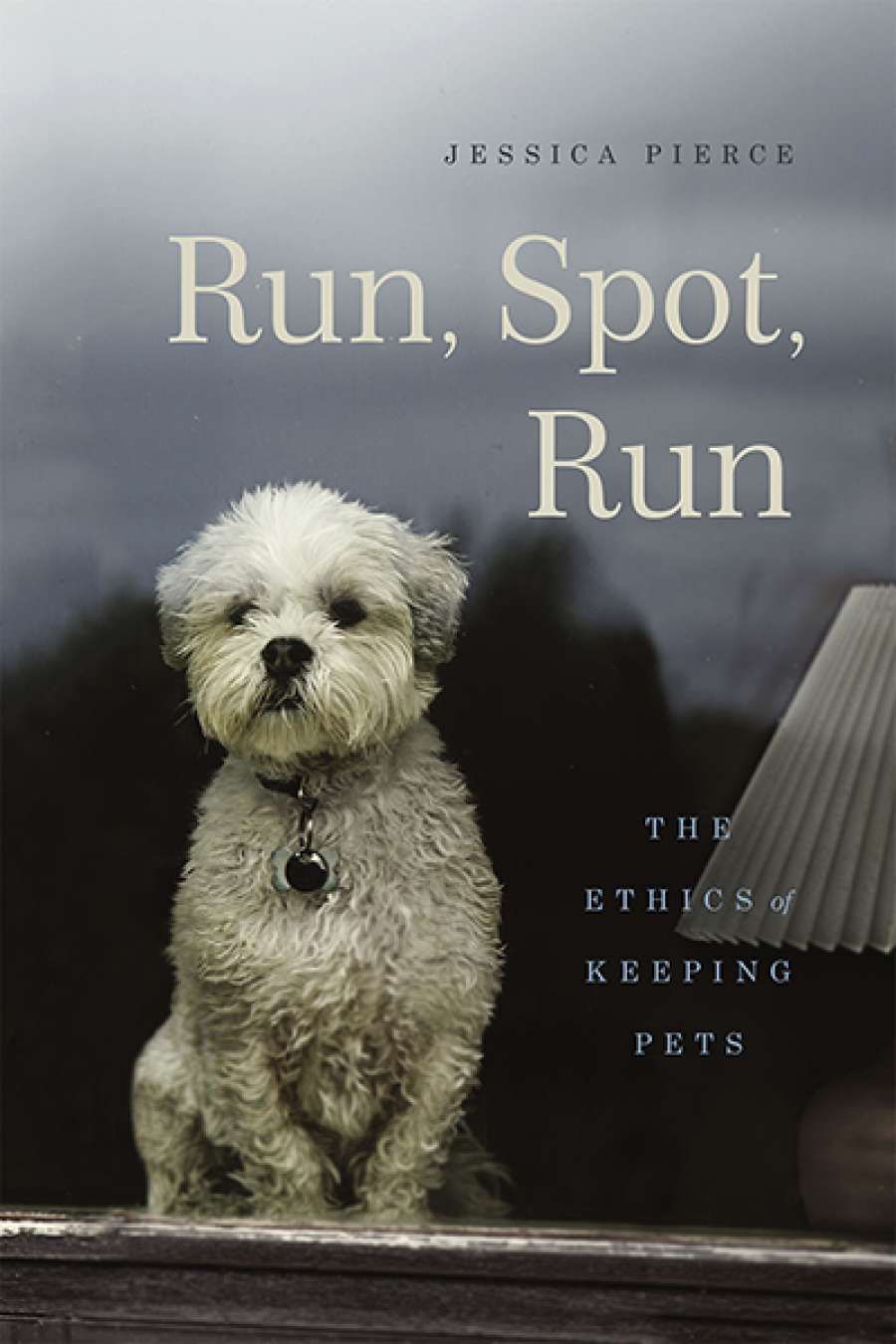
- Free Article: No
- Contents Category: Philosophy
- Custom Article Title: Simon Coghlan reviews 'Run, Spot, Run: The ethics of keeping pets' by Jessica Pierce
- Review Article: Yes
- Online Only: No
- Custom Highlight Text:
A sea change has occurred in the way we regard pets. In recent decades the West has fervently embraced pet keeping. Australia has one of the world's highest levels of pet ownership ...
- Book 1 Title: Run, Spot, Run
- Book 1 Subtitle: The ethics of keeping pets
- Book 1 Biblio: University of Chicago Press (Footprint) $52.95 hb, 256 pp, 9780226209890
We are blinded by the normalisation of animal disposal. Pointedly, Pierce contrasts our sanitised system with an earlier, more brutally honest, method from the late 1800s. Crammed by city authorities into large crates, the New York Times reported, forty-eight unlicensed dogs at a time were lowered in plain view into the East River:
The dogs seemed to know their fate, and most of them sullenly submitted to it; but many crouched down desperately in their corners and made a most ferocious and dangerous resistance ... There was one female dog with eight puppies that was especially hard to handle ... she actually forced the other dogs within to crowd upon top of one another and give her little family plenty of room.
Now we kill them behind walls.
In short, accessible chapters, Pierce dissects numerous other pet-related moral issues. She questions blanket desexing, on the basis of unclear evidence that neutering is uniformly beneficial to pets, and perhaps also because it deprives them of a natural function. (Scandinavian countries don't routinely neuter pets.) Meanwhile, female dogs on puppy production lines have litter after litter, producing offspring with painful congenital abnormalities. Many animals, not least exotic species, are neglected, bored, or suffer from untreated anxiety.
Pierce discusses the link between anti-social criminality and animal cruelty. Similarly, domestic violence is associated with animal abuse; hurting pets is an effective means of exerting control over women. Animals are surprisingly often the victims of sexual abuse. Alarmingly, there is a subculture in the United States of individuals – called 'zoos' – who have sex with animals. There are even animal brothels, and so-called crush films – the animal equivalent of snuff movies. This all makes for difficult, strange reading.
Other problems are built into the fabric of the pet-keeping system. Highly profitable industry bodies have successfully spun a 'narrative of pets as a happy and necessary part of every healthy family', while opposing limits on easy pet availability that reduce unwanted animals. (Interestingly, Victoria has recently moved to restrict the unfettered sale of puppies from pet shops.) The commodification of animals reaches a nadir in the US phenomenon of rent-a-pet: when you have had enough, simply return the not-so-shiny animal to the store.
 (Photograph by Erick Pleitez, Wikimedia Commons)
(Photograph by Erick Pleitez, Wikimedia Commons)
The language we use can foster these practices by deprecating pets' moral value. Thus, 'owner', unlike (say) 'guardian', presents pets as fundamentally property. 'It' objectifies; 'he' or 'she' does not. The very term 'pet' arguably trivialises animals. Pierce is right, but her writing sometimes undermines those points. For example: she calls herself an 'animal lover' and 'addict'; her celebration of animal companions is sometimes too cute; and her judgement is at points dubious. Here she speculates about whether her dog Bella, asleep on the couch, could conceivably have telepathic powers:
I set my intention and thought of the words flying through the air from me into Bella's head, 'Do you want to play Frisbee?' To my delight, Bella immediately lifted her head and grabbed the orange Chuck-it Flying Squirrel lying next to her. She jumped off the couch and looked at me with that special oh-my-god-it-is-time-to-play twinkle in her eye. I'm not convinced, but neither am I unconvinced.
The book is far from bland, but it is not philosophically rich. Still, Run, Spot, Run introduces very effectively to a wider audience serious questions about pet keeping's 'dark undercurrents'. Can keeping pets be justified? Well, if we let open the cages and doors, Pierce asks, who would stay with us? Not, perhaps, birds, reptiles, insects, rodents, and various exotic animals. Dogs would stay, and probably cats too. But many ethical problems would remain. One might question Pierce's comparison of pet keeping with the plight of animals 'caught in the wheels of agribusiness'. Yet many of her objections hit home.
In 2016 the New South Wales government accepted that the greyhound racing industry treated animals so badly that no reforms would likely render it morally satisfactory. Jessica Pierce comes close to a comparable view. But she finally judges that, with sufficient awareness, we might transform the way we live with animal companions. Her book is a call to us to help make that happen.


Comments powered by CComment